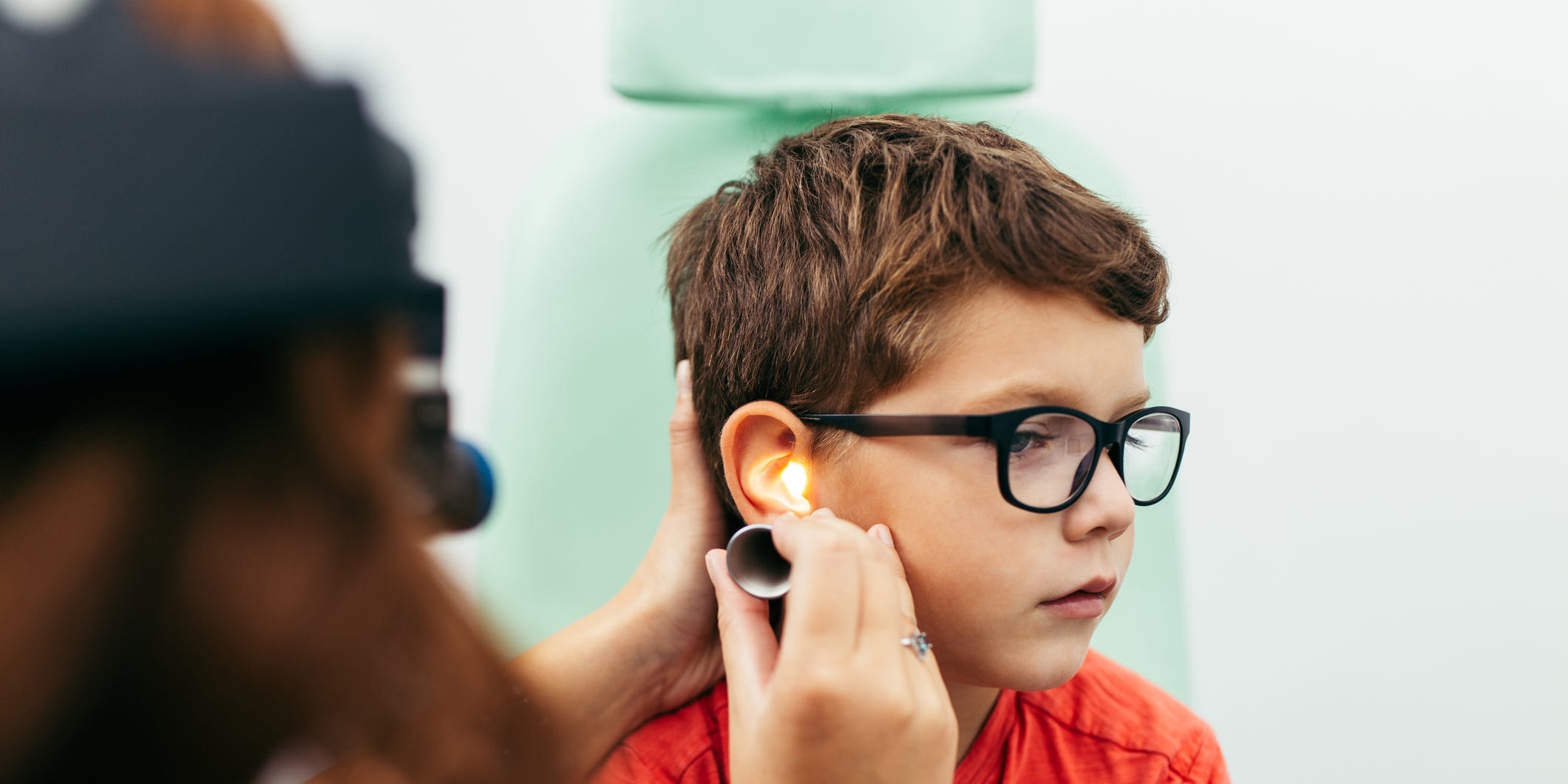
DuxX/ Getty Images
- Common ear infection symptoms include fever, ear pain or fullness, and a headache.
- Children tend to get ear infections more frequently than adults, and often develop a fever.
- Ear infections can get better on their own, but antiobiotics can clear up most ear infections.
- Visit Insider’s Health Reference library for more advice.
Medically referred to as “acute otitis media,” ear infections can cause several symptoms, including fever, ear pain, and difficulty hearing. These symptoms can vary among adults and children.
While adults can also get ear infection, they are more common in children, because children have shorter eustachian tubes (which are tubes in that connect to the middle ear) they have a harder time draining out any fluid trapped in the ear. “Over 50% of all children with ear infections will experience a fever,” says Douglas Hildrew, an ear, nose, and throat specialist at Yale Medicine.
Here’s what you need to know about the most common symptoms and causes of ear infections and how to treat them.
Symptoms of an ear infection
Ear infection symptoms can vary by age. But it’s not uncommon for people to get a fever when they have an ear infection because fever is part of your body’s immune response to kill germs and fight infection.
What causes an ear infection?
When you have an ear infection, the middle ear often fills up with pus, which can put pressure on the eardrum and the middle ear and cause a lot of pain.
"True ear infections are almost uniformly bacterial. They typically occur because bacteria is introduced into the middle ear," says Hildrew.
However allergies and viral infections like cold and flu can also result in ear pain and fluid buildup. The causes of ear infections can vary between adults and children, but here are the most common culprits:
Ear infections themselves are not contagious. However, colds or viral infections that result in ear infections are.
How can you treat an ear infection?
Ear infections can be treated with antibiotics if needed, says Hildrew. While many cases of adult ear infections may get better on their own without antibiotics, children may be prescribed antibiotics, depending on their symptoms and the severity of their condition.
According to Hildrew, symptoms are usually resolved or significantly improved within 48 to 72 hours; he recommends that children and adults see a doctor if the infection isn't better in 48 to 72 hours. "Those with symptoms lasting longer than 48 to 72 hours generally require antibiotics for resolution," he says.
If your ear infection is a result of other causes, like a viral infection, allergies, or trauma to the ear, your doctor may prescribe treatment for the underlying condition as well.
Insider's takeaway
Ear infections are frequently due to bacteria that causes your middle ear to fill with pus, triggering pain and pressure.
If you or your child have a fever as a result of an ear infection, rest and staying hydrated will help combat it. You can also take medication like Tylenol, Motrin, or Advil if the fever is causing you a lot of discomfort
Ultimately, it's best to prevent ear infections before they start. One of the first steps to preventing ear infections is to avoid Q-tips, says Hildrew.
"Many people try to keep their ears clean using a Q-tip, but this can actually be quite harmful. Q-tips can bruise or tear the skin of the ear canal. They also just push wax deeper into the ear canal, making it more likely to create an infection," says Hildrew.
You should also try to avoid getting water or shampoo in your ear, as that can result in swimmer's ear.
In children, the pneumococcal conjugate vaccine (PCV13) can help prevent bacterial infections that cause ear infections. Avoiding secondhand smoke, practicing good hygiene habits like frequent hand-washing in group settings, and breastfeeding your child for at least six months, or preferably a year, can help lower their chances of getting an ear infection.